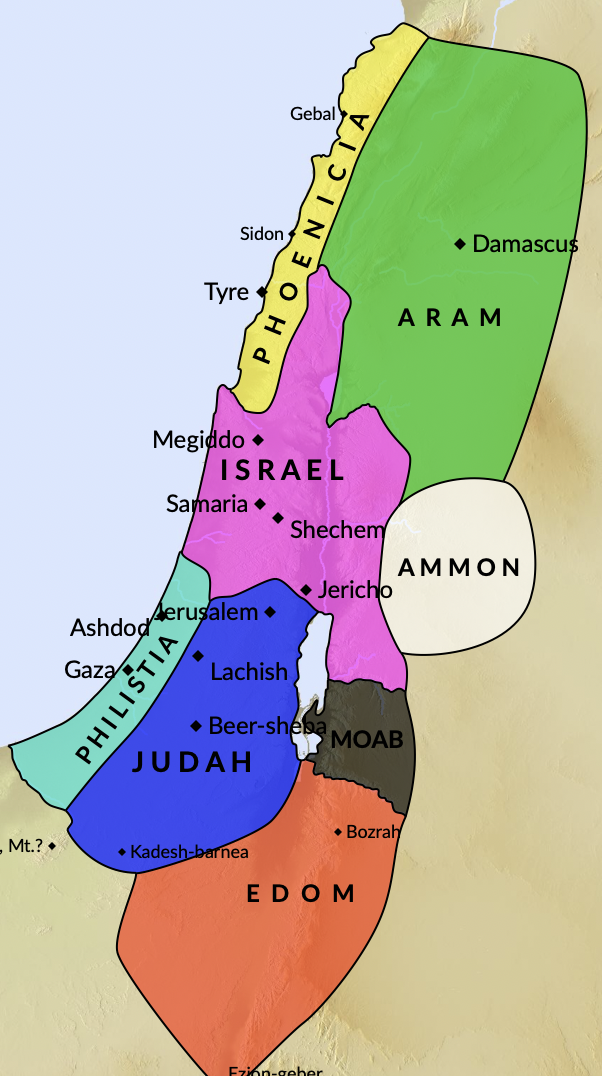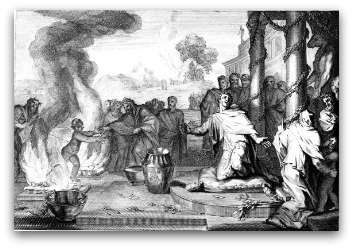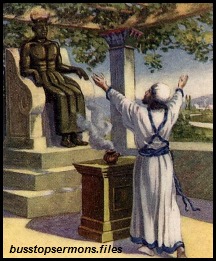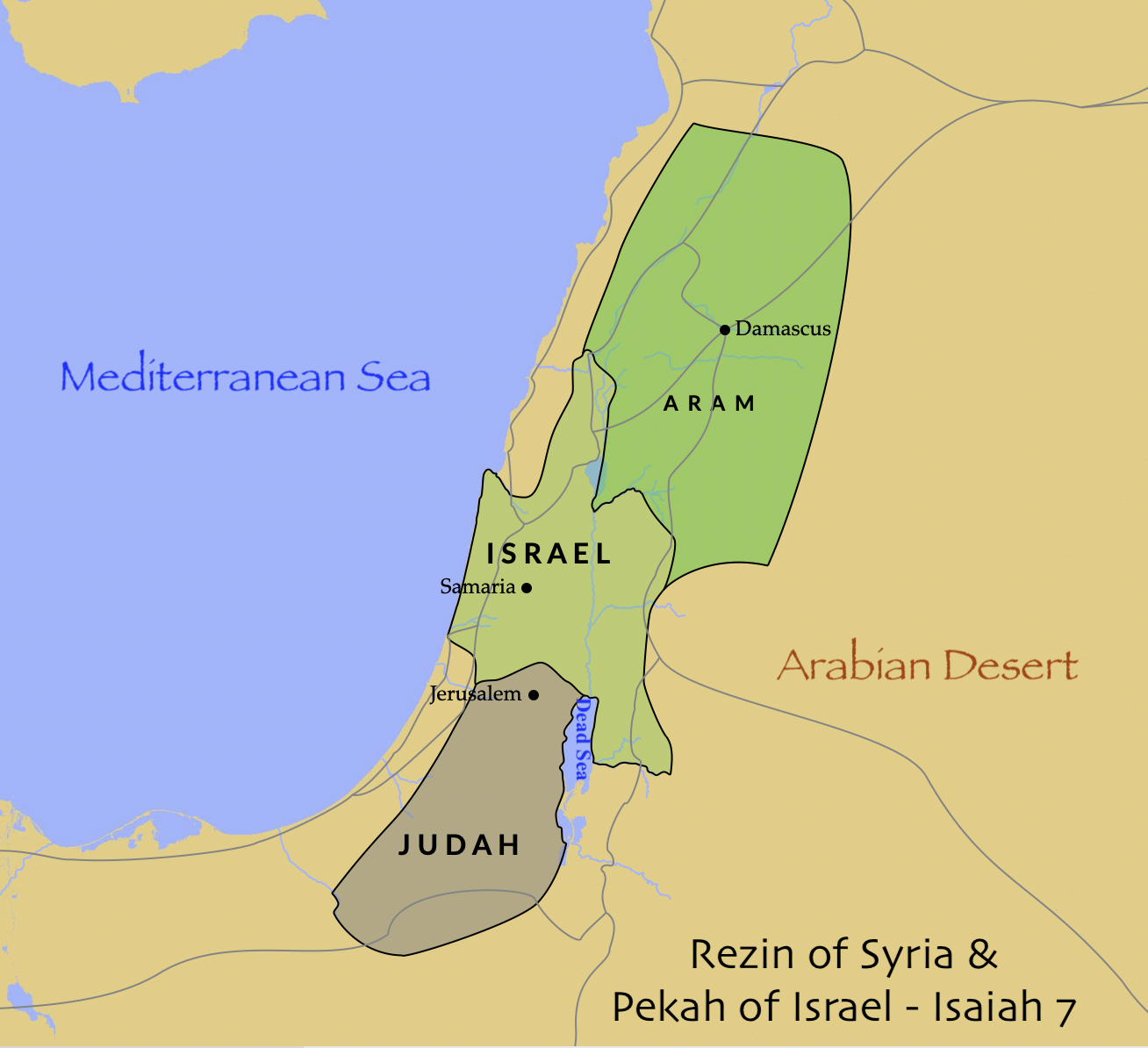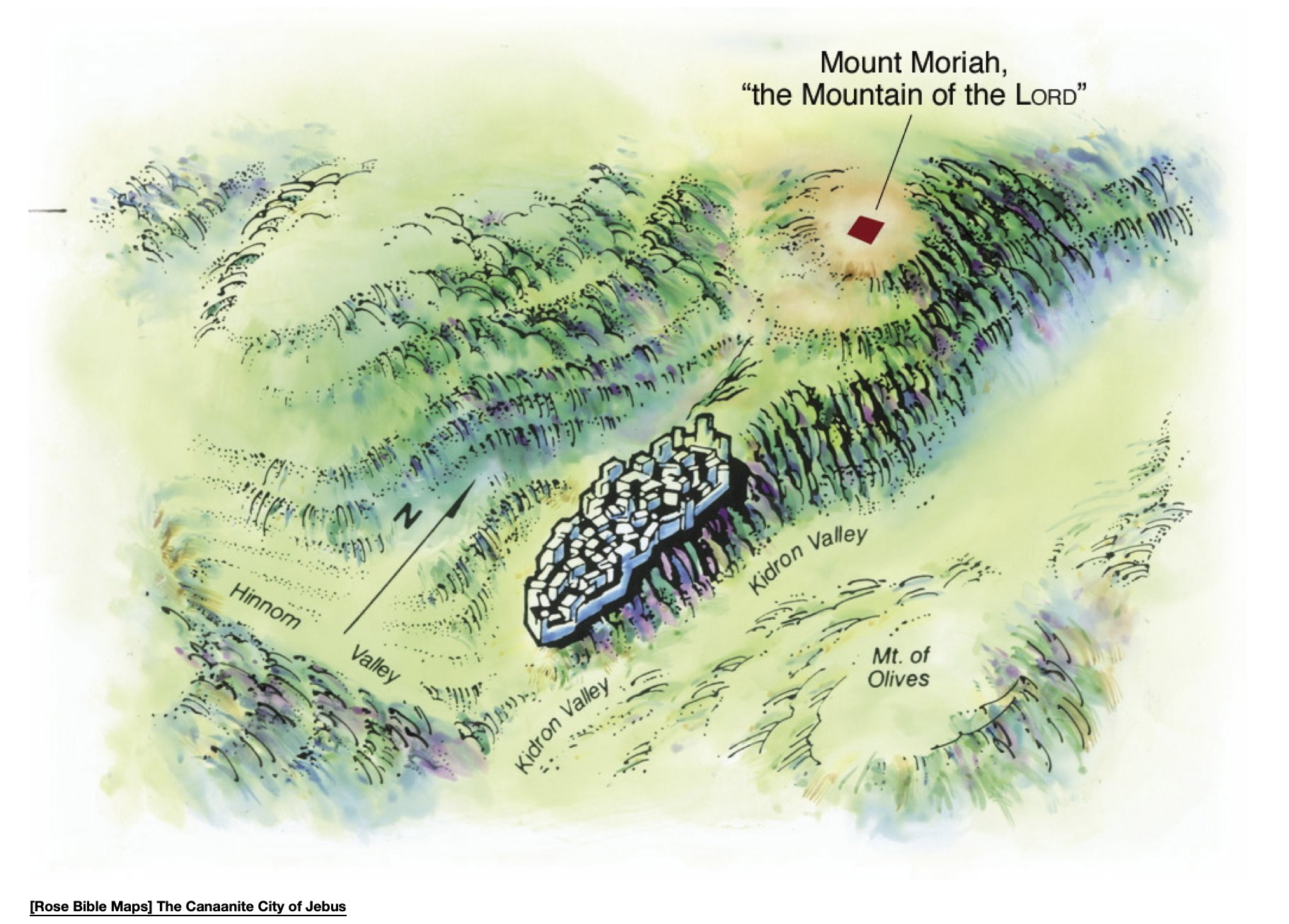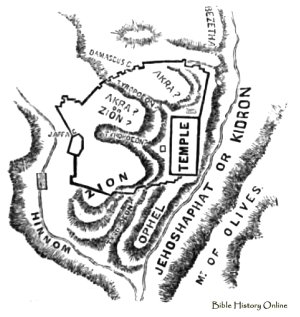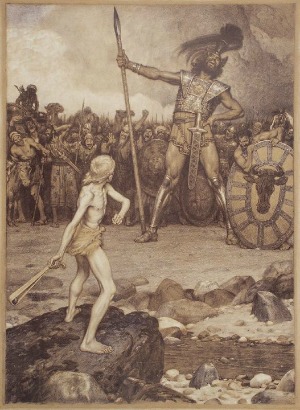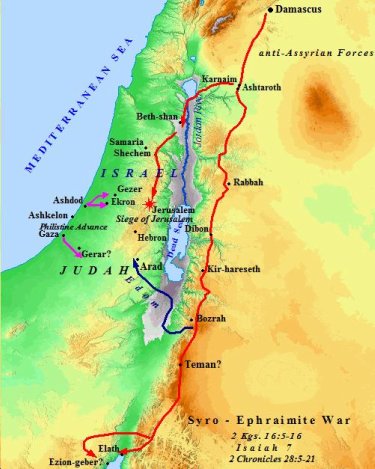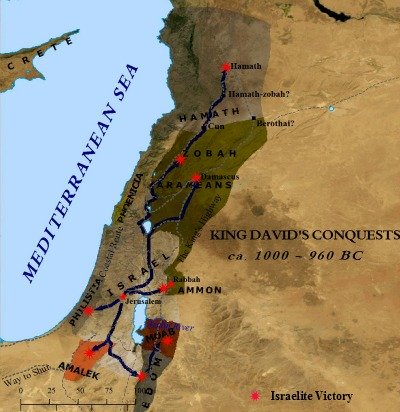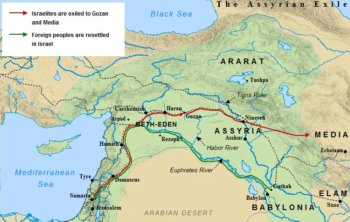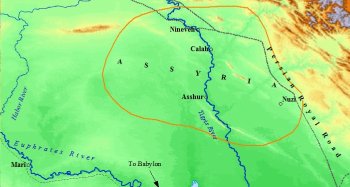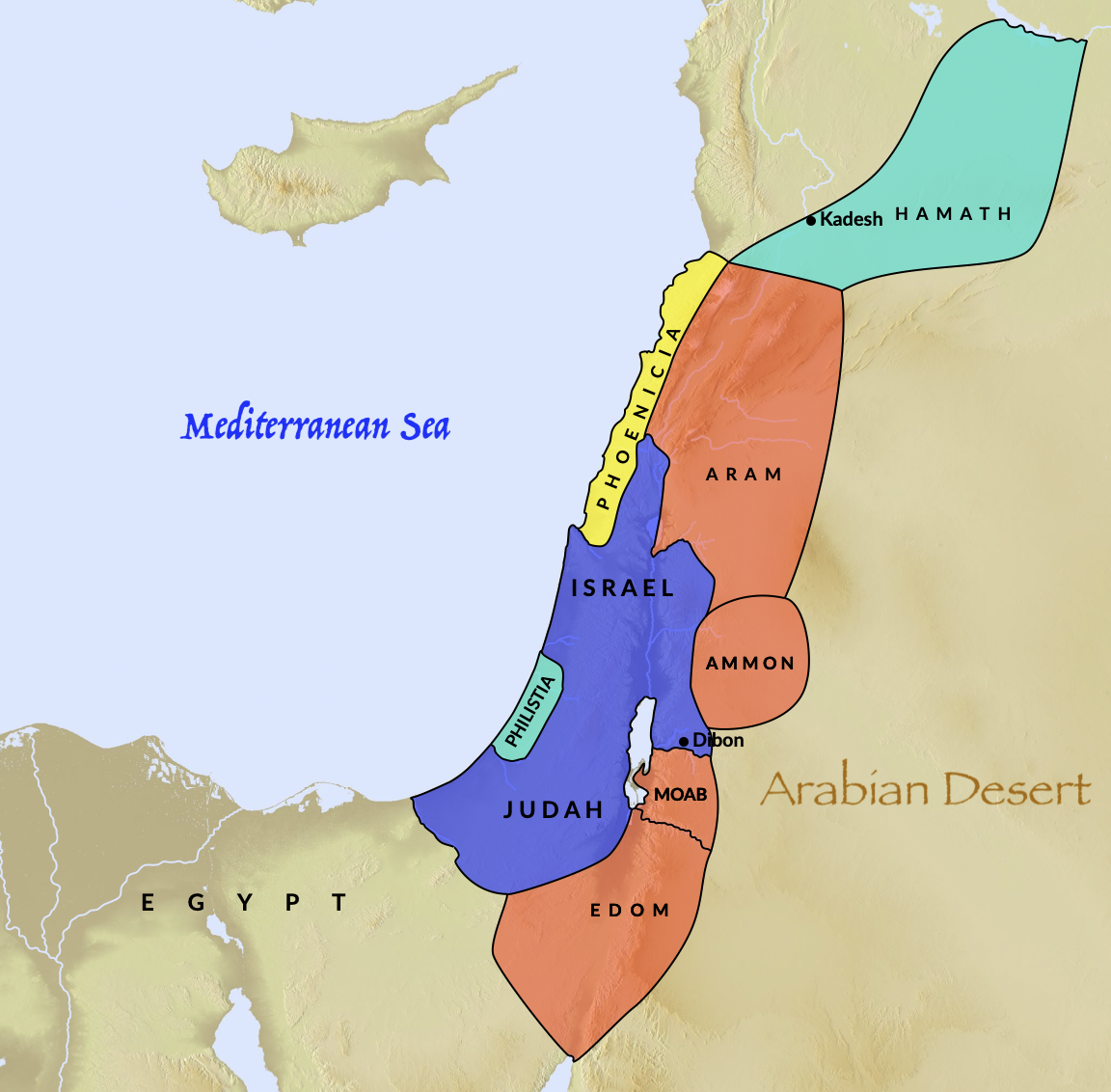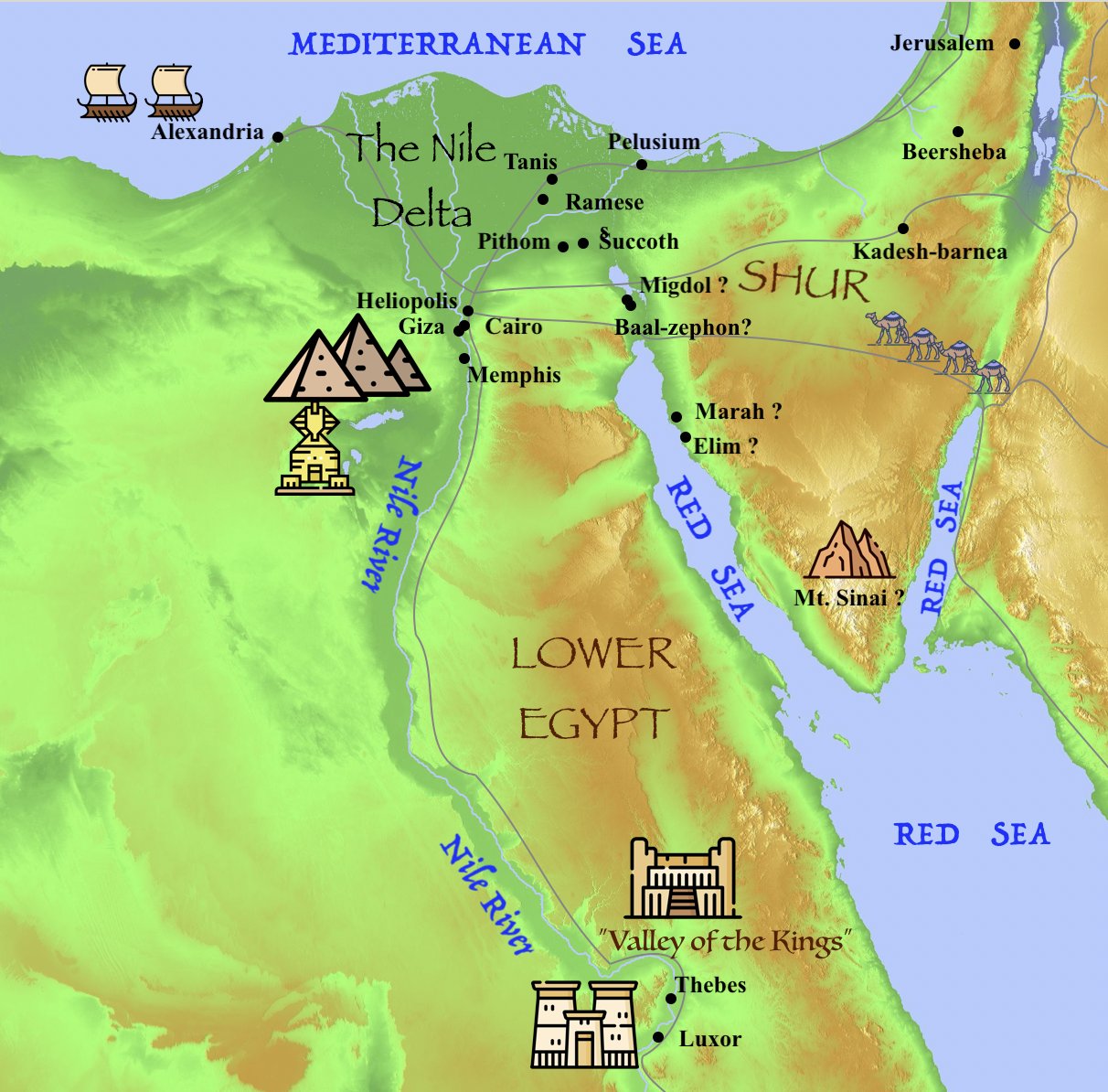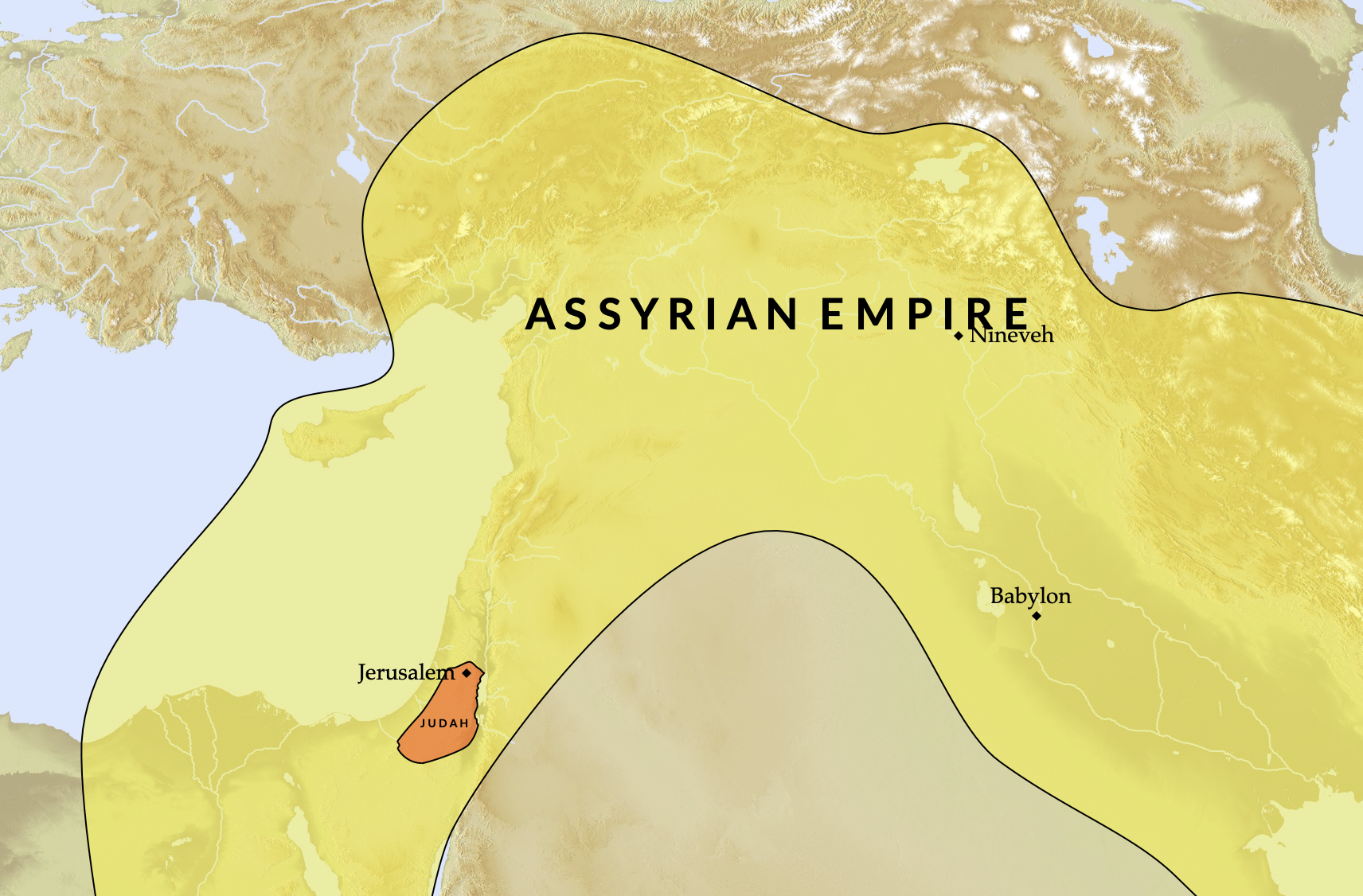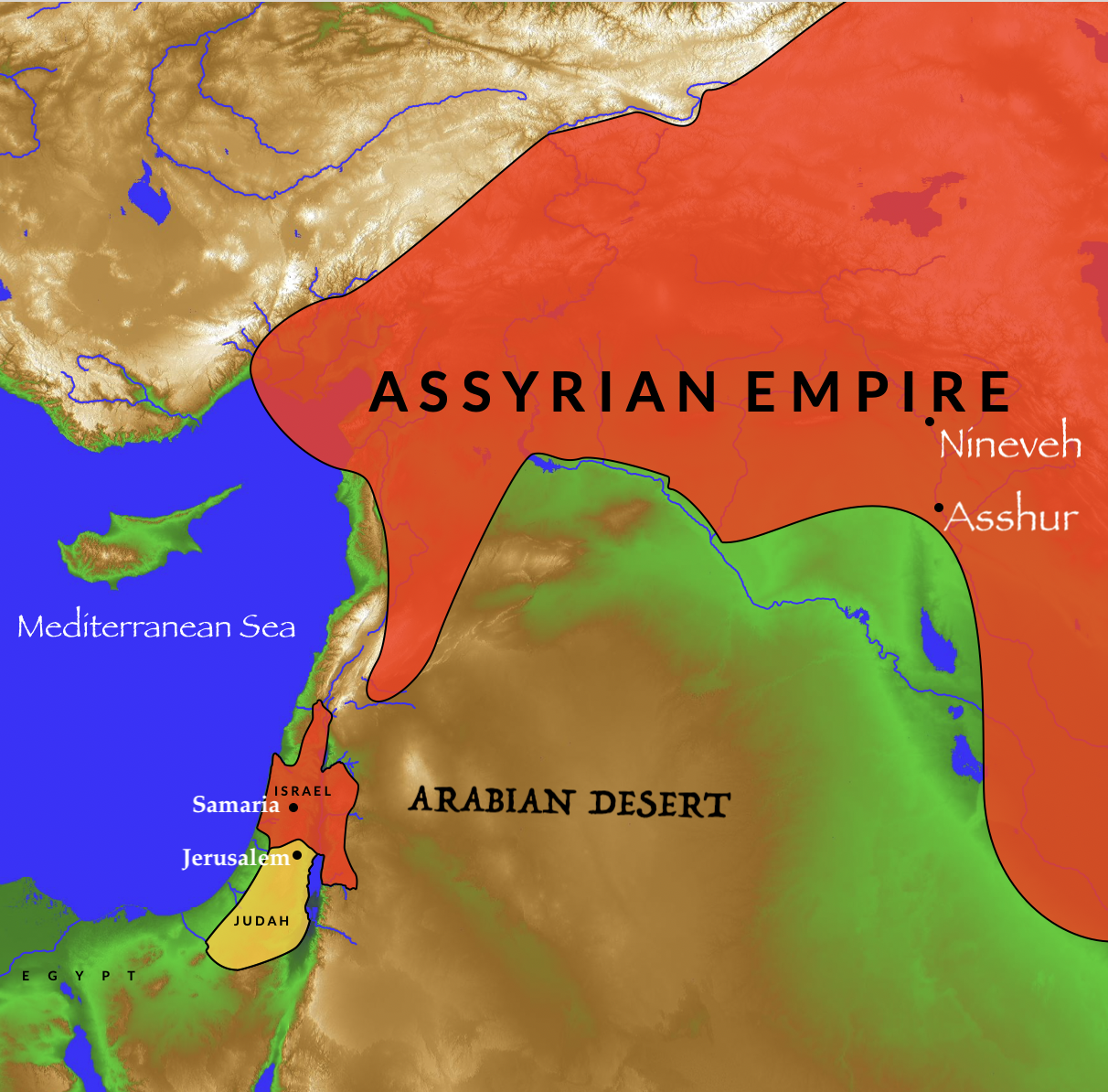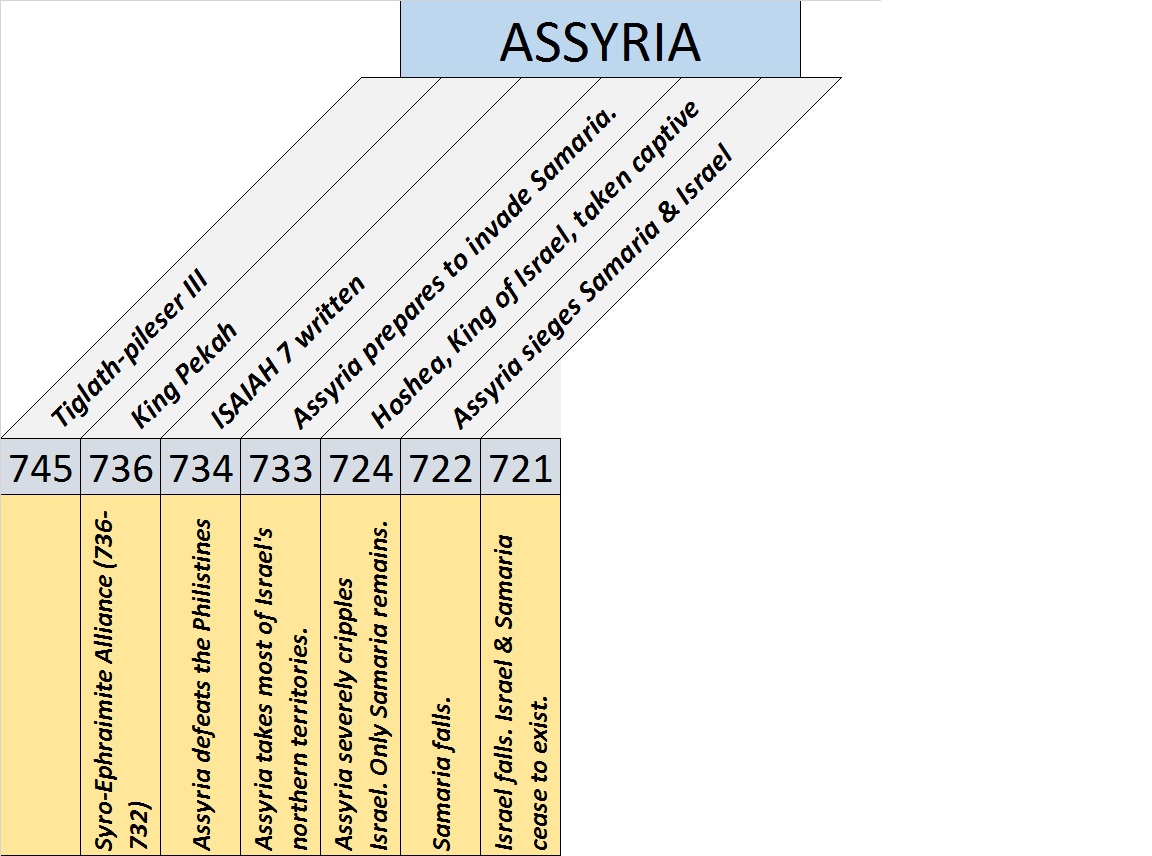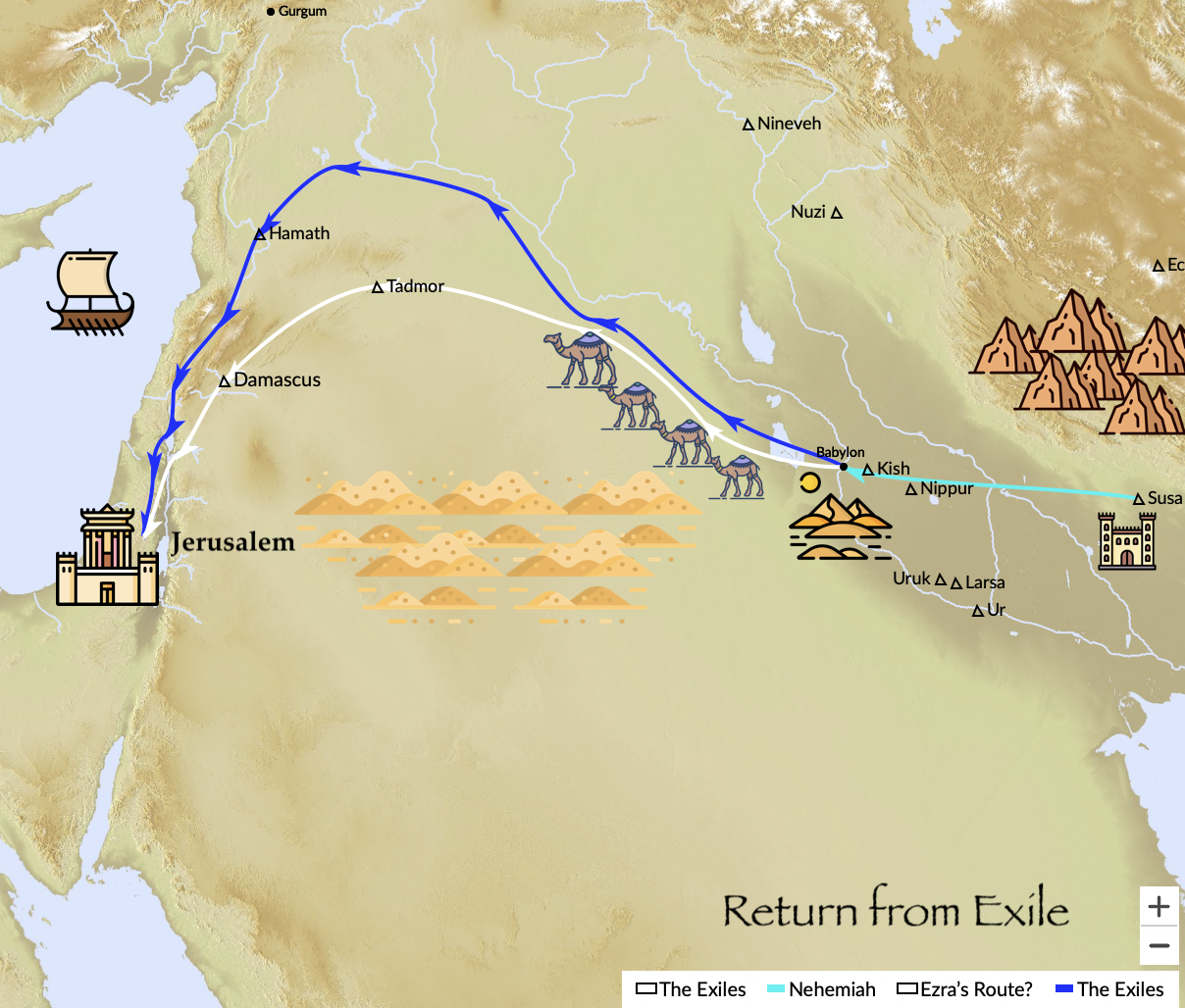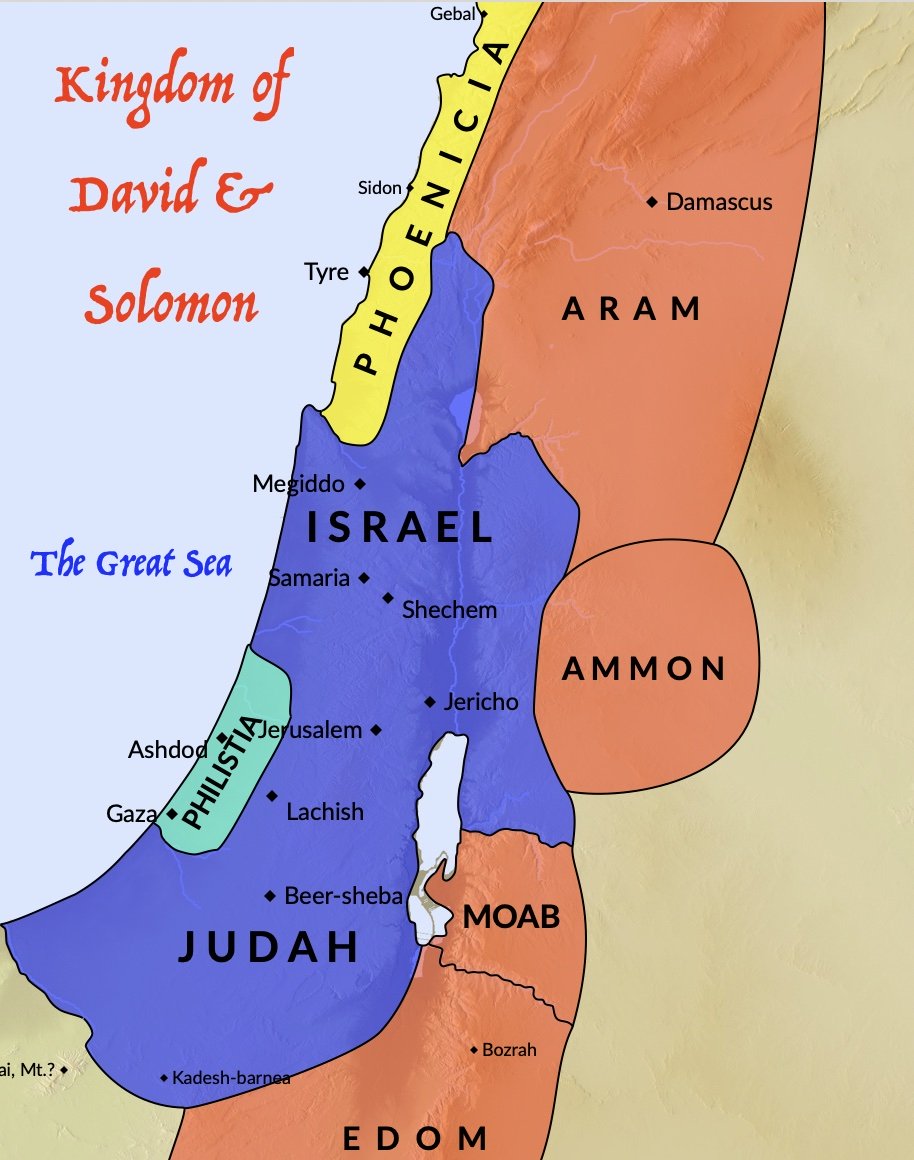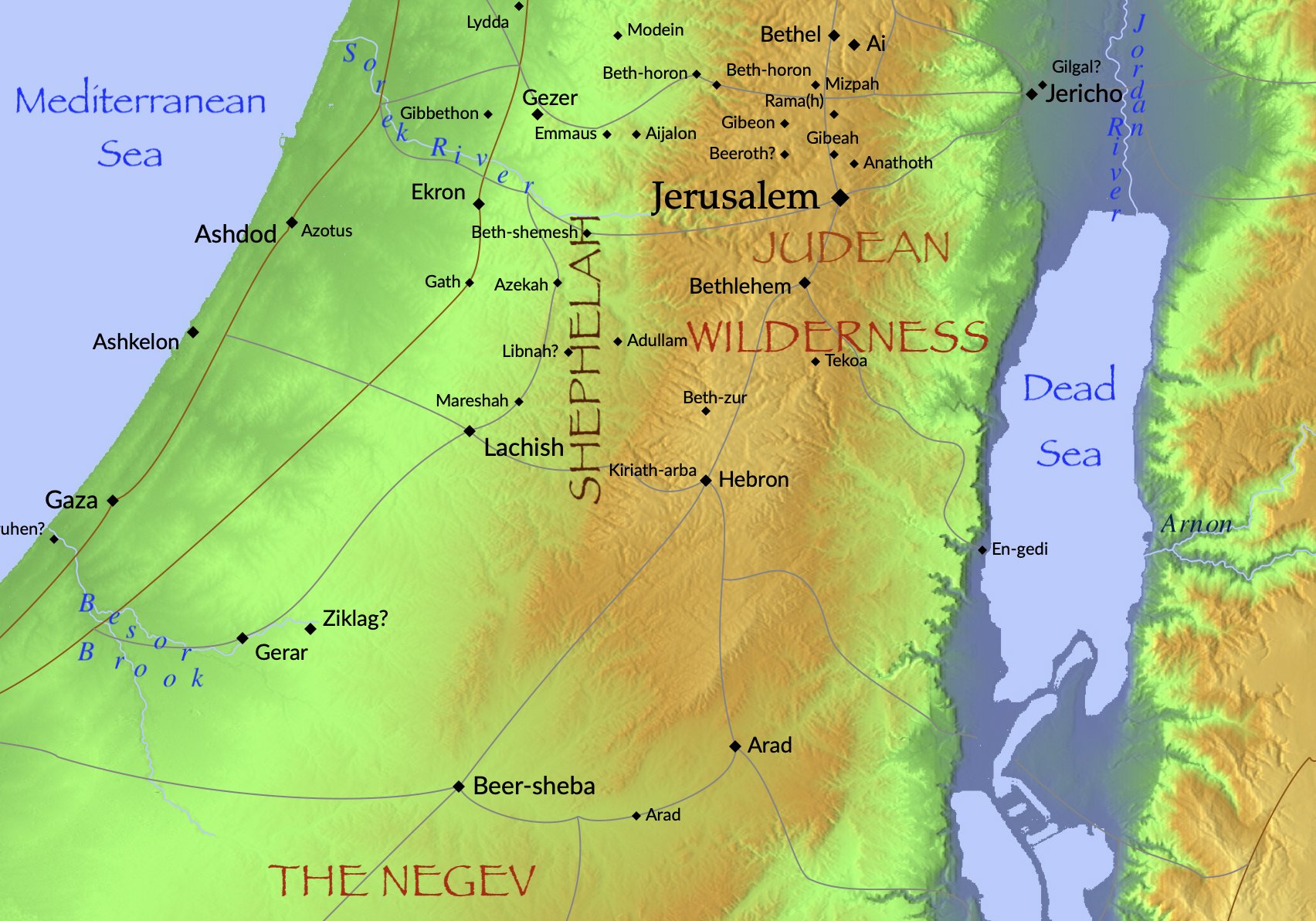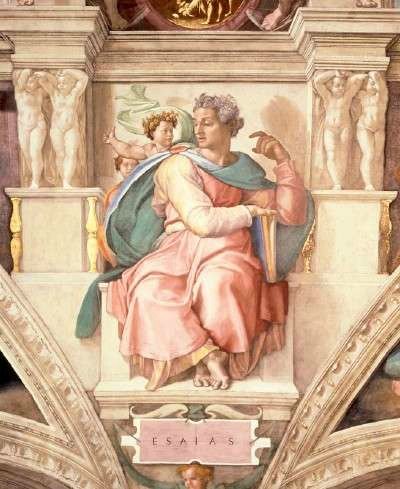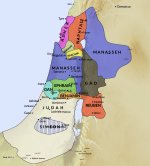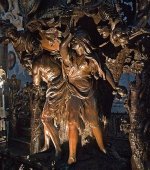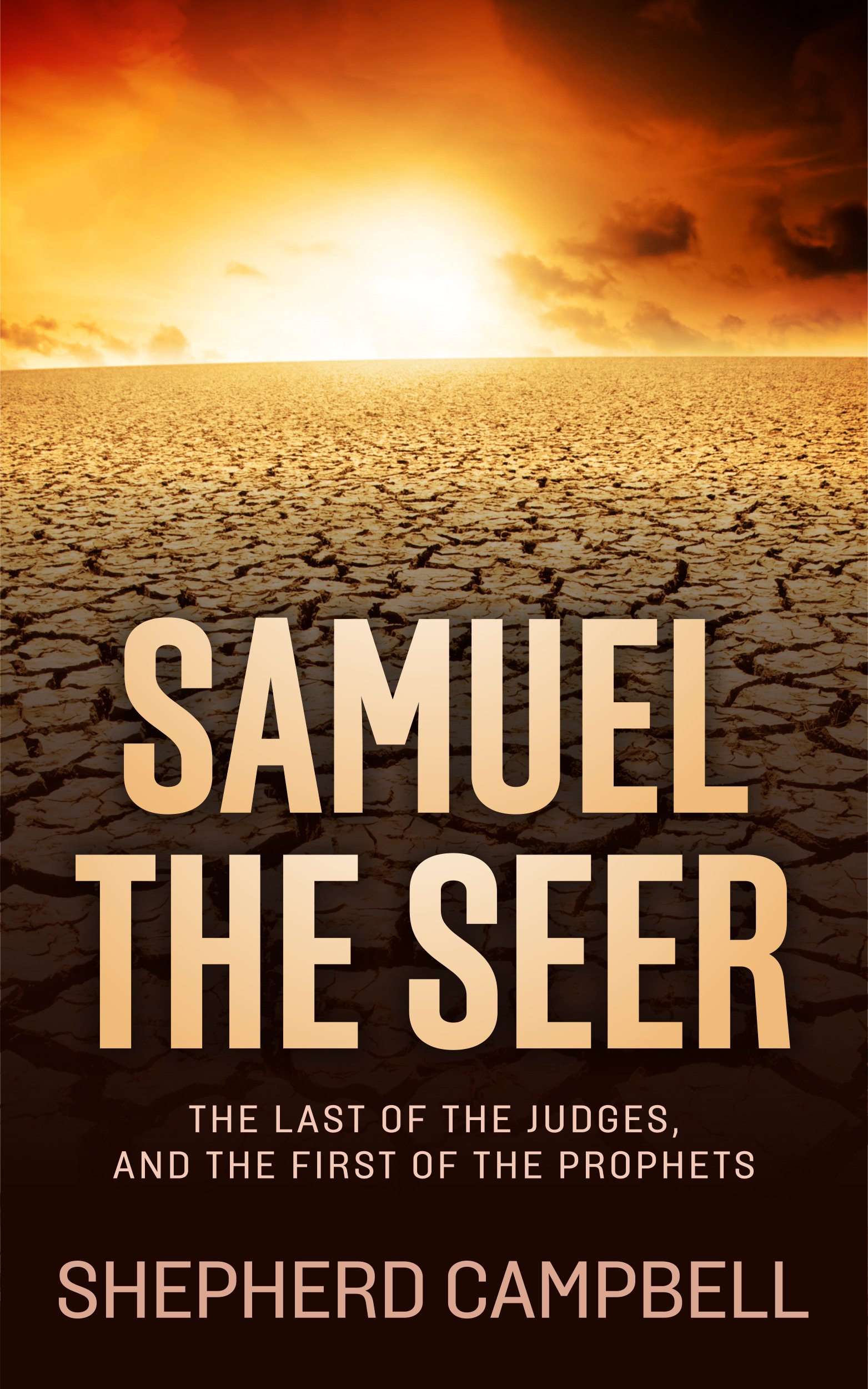- Biblical Maps
- Home Page
- History of Israel Blog
- Ancient Mesopotamia
- Map of Palestine
- Abraham
- Ancient Israel
- 12 Tribes of Israel
- Jerusalem
- The Book of Isaiah
- Palestine
- The Habiru
- Contact Us
- Bible Study Forums
- Media Page
- Visitors Sitemap
- Privacy Policy
- The History of the Old Testament
- In the Days of Noah
- The City of Jericho
VISIT OUR FACEBOOK PAGE!
ISAIAH 7
Length: Isaiah 7 is 25 verses long.
Date: 734-732 BC. Verse one places this chapter, along with chapter 8, in the reign of King Ahaz, the son of King Jotham and grandson of Uzziah. Ahaz was a wicked king, and during his reign the kings of Pekah (Israel) and Rezin (Damascus) plotted against him because of his refusal to join their alliance against King Tigleth-pilesar III of Assyria. The ensuing war ended in 120,000 of Judah's troops dying; and Ahaz reaching out to Assyria. In the end both Israel and Judah were made Assyrian vassals. These events describe the Syro-Ephraimite war - thus solidly placing this chapter after the beginning of the war, ca. 733 BC.
Structure: Isaiah 7:1 begins a long section of Isaiah that scholars say concludes in Isaiah 8:18. This section describes the historical event known as the Syro-Ephraimite War - fought between Judah on the one side, and Israel and Damascus on the other. Some scholars have claimed Isaiah 7 is a part of the prophet's memoirs.
However, Isaiah 7 describes events in the third person, thus outside of the normal first person reserved for personal memoirs (Smith, p. 200.) This is not to say Isaiah did not write chapter 7, it was just not as a part of his "memoirs", but rather as an observer of Israel's past and present. The prophet was, after all, just a mouthpiece and not the centerpiece. God was the centerpiece and the prophet simply answered a call. King Ahaz is mentioned specifically as a wicked king in chapter 7 - and Judah's present distress is connected to Ahaz's sinfulness. Thus God's judgement is connected to the sin of both the king and the people.
CLICK ON THE LINK TO VIEW THAT VERSE.
v. 2
vs. 3-4
vs. 5-6
vs. 7-9
vs, 10-11
v. 14
v. 17
v. 18
v. 20
v. 23
vs. 24-25
ISAIAH 7:1
"Now it came about in the days of Ahaz, the son of Jotham, the son of Uzziah, the king of Judah, that Rezin the king of Aram and Pekah the son of Remaliah, king of Israel, went up to Jerusalem to wage war against it, but could not conquer it."
King Ahaz of Judah reigned from 735-716 BC. From ca. 743-735 Ahaz was co-regent with his father King Jotham. King Pekah of Israel reigned from 752-732 BC. Verse one of Isaiah 7 precisely dates these events to the Syro-Ephraimite War in 734-732 BC. However, the conflict had started years earlier.
In the summer of 734 BC the Assyrian army campaigned in the Levant, taking control of land around Tyre in the north, and territory in Philistia in the south. It was clear to the local kings they must band together in order to survive the increasing Assyrian threat.
Rezin, king of Aram, or Syria, gained the cooperation of Pekah from Israel and formed an alliance. Rezin, mentioned first, was likely the leader of this alliance. Together the two kings approached Judah in the south with an offer to join their stand against the Assyrians. King Ahaz of Judah refused, for reasons to be discussed later. Thus the Syrian and Israelite kings "went up to Jerusalem to wage war against it".
This was the situation in Isaiah 7. King Ahaz of Judah, it must be noted, was a wicked and evil king. He came to power in Judah in Pekah's twentieth year on the throne of Israel. Ahaz practiced child sacrifice and chased after foreign gods and pagan practices. The Canaanite religions often practiced human sacrifice. The Philistines practiced child sacrifice.
God, of course, vehemently denounces human sacrifice (Lev. 18:21 / Dt. 12:31), yet Ahaz was an adherent. He, like King Manasseh after him, had strayed a very long way from the example set by King David. In fact, these two kings - Ahaz & Manasseh - were two of the most wicked kings in Judah's history.
Pekah, the king of Israel, was a usurper who had assassinated King Pekahiah, the rightful king of Israel. Pekah was the king's officer before he assassinated his boss and took the crown (II Kings 15:25). Rezin and Pekah's attempt on Jerusalem is also mentioned in II Kings 16:5.
Rezin had brought his army from Aram and encamped in Ephraim, just north of Jerusalem. Together with Israel the two armies vastly outnumbered Judah, whose inhabitants crouched behind the walls of Jerusalem fearing their lives. War was imminent.
Who will King Ahaz trust?
ISAIAH 7:2
"When it was reported to the house of David, saying, 'The Arameans have camped in Ephraim,' his heart and the hearts of his people shook as the trees of the forest shake with the wind."
One notices the phrase, "the house of David", used in Isaiah7:1. This is an odd way to describe the King of Judah, yet has much significance to the context of this verse. The house of David refers to the descendants of King David that occupied the throne of Judah.
The continuity of David's dynasty was a big contributing factor to why the southern kingdom of Judah outlived the northern kingdom of Israel by nearly two centuries. The northern kingdom was ripe with strife, jealousies, assassinations, usurpers, intrigue & deception, etc - as discussed above. Conversely, the house of David provided a steadying influence in Judah by producing a consistent line of succession stretching from 1000 BC to 586 BC.
However, in Isaiah 7:2 the Davidic line of succession faces annihilation. King Ahaz of Judah is the king in verse 2. He is the representative of the house of David at this point in Judah's history, and he is the one whose heart "shook as the trees of the forest". Ahaz, though, knew Rezin of Aram well by this time. II Kings 15:37 suggests this conflict began years earlier during the reign of King Jotham, Ahaz's father. It should be noted Aram is another name for Syria, and its capital of Damascus is the same as the Syrian capital today. These two neighbors have an ancient and closely intertwined relationship.
Thus Ahaz was well aware of Rezin's intentions (as Netanyahu is of Assad's today) - and now that Aram had allied with Israel Judah was severely outnumbered and stood very little chance of victory. In Isaiah 7 Jerusalem lay bare before the vast army of Aram & Israel encamped just to the north of Judah's capital city. The people's hearts melted in fear, and Ahaz faced the extermination of the royal line - which had maintained the throne since its founder King David. Thus when Isaiah addresses the house of David in verse two, he is emphasizing not only the imminent danger to Jerusalem, but the imminent danger of the royal House of David being severed - the Davidic Covenant broken.
II Chronicles 28 provides an alternative and much more detailed account of Ahaz's reign and the Syro-Ephraimite war of Isaiah 7. II Chron. 28:5-8 details the carnage Rekin and Pekah had already inflicted on Judah prior to these events in Isaiah 7. When these events are read in conjunction with Isaiah 7:2, one clearly sees why Ahaz and the people were terrified. God was dealing harshly with King Ahaz.
Below is a description of the damage inflicted on Judah prior to Isaiah 7:2.
|
I. II Chr. 28:5 - King Rezin of Aram takes captive "a great number" of Judeans and exiles them to Damascus. |
II. II Chr. 28:6 - King Pekah of Israel slays 120,000 men of Judah in one day. |
|
III. II Chr. 28:7 - Ahaz's son is killed by "a mighty man of Ephraim", along with two other close officials of Ahaz. |
IV. II Chr. 28:8 - Israel carried away 200,000 "women, sons and daughters" of Judah, along with "a great deal of spoil". |
With the amount of damage already inflicted on Judah it is no wonder Ahaz and the people were terrified by the report. Yet, Jerusalem would not fall.
II Samuel 7 describes how God established a covenant with King David. This covenant ensured David that through his son Solomon God would "establish the throne of his kingdom forever".
Isaiah 7 describes a time when this covenant stood at risk of being broken. Will God allow His past promises to be broken? Would King Ahaz trust God, or the gods he had worshiped in the past? The fate of Judah rested on these answers.
ISAIAH 7:3-4
3 "Then the Lord said to Isaiah, 'Go out now to meet Ahaz, you and your son Shear-jashub, at the end of the conduit of the upper pool, on the highway to the fuller's field, 4 and say to him, 'Take care, and be calm, have no fear and do not be fainthearted because of these two stubs of smoldering firebrands, on account of the fierce anger of Rezin and Aram, and the son of Remaliah.'"
We are given some insight into the nature of Isaiah's life in verse 3. We are told he has a son and given his son' name, Shear-jashub. Isaiah was also married, thus in this respect he was not only a prophet of God's, but also a father and husband.This child, Shear-jashub, is clearly a different child from the one mentioned later in Isaiah 7:14-16; though scholars have argued and debated about the identity of these children for ages.
Shear-jashub translates as, "a remnant shall return". The remnant theme is pervasive throughout all of the book of Isaiah (Is. 10:20-22; 11:10,16; 37:31,32; 46:3). Isaiah is given a specific location to go and meet Ahaz. The implication is this is not a scheduled appointment between Ahaz and Isaiah. God is revealing where Isaiah can find Ahaz, and what to say when he confronts the king.
It would seem logical King Ahaz was
overseeing the securing of a water supply in preparation for war. The
upper pool may be an indication this body of water was on the north
side, or higher elevated part of Jerusalem. This area was the northern
part of Jerusalem and the most exposed and vulnerable to an attack and
mounting army. Holman's OT Commentary on Isaiah suggests the setting was outside of the city in a good position to view the overall military situation.
The Assyrians and Romans would both encamp to the north of Jerusalem in their siege of the city. Ahaz, thus, logically would've been preparing the weakest and most vulnerable part of Jerusalem by securing the city's water supply and building up defenses. It was here the Lord told Isaiah to go and confront the king.
Isaiah 7 contained a message of hope and salvation. The fourfold repetition of assurances is meant to emphasize Judah and Jerusalem will be spared and the house of David preserved. Take special notice of what Isaiah says to King Ahaz in verse four.
I. "Take care..."
II. "...and be calm..."
It is interesting these are the first things God wants Isaiah to tell Ahaz. Tensions were high in Jerusalem as the combined armies of Israel and Aram lie just to the north, poised to strike the city at any moment. The bigger threat of Assyria lurked in the shadows. Panic had likely set in throughout Judah and Jerusalem as rumors and fear spread.
In times of panic and fear confusion often reigns, and it is likely Ahaz was surrounded by a multitude of advisers all advising different options, strategies and plans. Some urged Judah join the alliance, others probably urged he seek out Assyria. Some may have even urged him to seek Egypt's assistance. Isaiah urged him to seek God.
In Isaiah 7:4 God says; "Take care and be calm". Isaiah urges Ahaz to slow down and take note of himself and his advisers, to pay attention and listen to what is being said and to ultimately seek God's direction. God is assuring the King Judah will be delivered, thus Ahaz simply need acknowledge His protection.
Gary Smith points out the "greatest danger is to be controlled by fear", and God was assuring Ahaz there was nothing to fear. It should be noted Isaiah's name has been interpreted by Bob Utley as meaning "YHWH brings salvation". Thus there is no better messenger than Isaiah to deliver this message of hope and salvation to Ahaz. Other passages reflect this message to be still and listen before acting impulsively.
Exodus 14:13-14 = Moses tells the people not to fear Egypt as they are backed up to the Reed Sea (Red Sea): "Do not fear! Stand by and see the salvation of the Lord...The Lord will fight for you while you keep silent."
Isaiah 30:15 = "...In quietness and trust is your strength."
Lamentations 3:26 = "It is good that he waits silently for the salvation of the Lord."
Psalm 46:10 = "Cease striving and know that I am God; I will be exalted among the nations, I will be exalted in the earth."
Scripture makes it clear we cannot strive to achieve God. One group tried in antiquity by building a tower, yet God thwarted their plans. Before we can hear God's voice, we must silent our own and Isaiah is saying we do that by taking notice of ourselves and our environment, and remaining calm. We must block out the noise and confusion of day-to-day life before we can hear the Spirit.
One can picture the prophet and his son approaching the hectic and busy King Ahaz, issuing orders and pointing this way and that. People were bustling about as the scene was a hive of activity and preparation. Amidst the noise and confusion that accompany war preparations, the prophet Isaiah told Ahaz to calm down and be quiet in order to hear God's message.
III. "Have no fear"
Fear is one of mankind's most dreaded emotions. Fear can paralyze a man to inaction. Fear can bring a man out of a deep sleep with a start and sense of sheer panic. Fear can bring a man to his knees like a child. Fear can leave a man feeling helpless and trapped. Fear often prevents man from achieving greatness.
God often encourages His people by telling them not to have fear. These messages of courage are often given on the eve of dangerous missions or in difficult seasons life. One of the greatest messages of courage and strength is given by God to Joshua and the Israelites prior to their campaign into Canaan, recorded in Joshua 1:6-9.
Three times in these three verses God urges Joshua and Israel to "be strong and courageous", for though Moses had died and a hostile land awaited, "the Lord your God is with you wherever you go". It would only be without fear that Israel could conquer and settle the Promised Land. If they went into battle with fear, they would surely die. God encouraged them and strengthened them, and faithfully they obeyed His commands earning victory at Jericho and elsewhere.
Other passages, too, encourage man to not have fear and rely on God.
Deuteronomy 20:3-4 = Moses gives Israel the Laws of Warfare in Dt. 20.
" 3 O Israel, you are approaching the battle...Do not be fainthearted. Do not be afraid, or panic... 4 For the Lord your God is the one who goes with you, to fight for you..."
Isaiah 10:24 = "...do not fear the Assyrian who strikes you with the rod...the way Egypt did."
Matthew 24:6 = "And you will be hearing of wars and rumors of wars; see that you are not frightened..."
Whether it be Moses leading the people out of Egypt, Ahaz facing down an alliance of Aram and Israel in Isaiah 7, Hezekiah staring down the Assyrian army, or those people living in the end of the age we are not to live in fear. Perhaps the best verse on the subject is found in II Timothy 1:7.
"For God has not given us a spirit of timidity, but of power and love and discipline."
Without fear, mankind is free to be bold. This is how God wants us to live - with boldness for Him. Ahaz was to slow down and take note of his advisers. He needed to be calm and listen to God. And he needed to eliminate the fear that was driving his decision making process at the moment.
IV. "do not be fainthearted"
Another way of saying this is - Be Bold. Notice in the passages above, namely II Timothy, Deuteronomy and Joshua 1, that a lack of fear is accompanied by actions of boldness. Fearlessness and boldness often go hand-in-hand. This is not to say one does not experience fear while in the act of bravery - as anybody in the face of danger will tell you it does. However, the fear is not a paralyzing fear, but a reverence for the situation.
Notice Isaiah tells Ahaz he is not to fear or be fainthearted on the account of "these two stubs of smoldering firebrands". Though the alliance portrays power to man, God assures the king they are but dying flames to Him. Because of this Ahaz should act out of boldness in God's promise, not out of fear of Rezin & Pekah. Ahaz should've taken notice of his great ancestor, King David.
I Samuel 17:32 = Fear has gripped King Saul as the giant Philistine Goliath taunts Israel's army. The King can find nobody brave enough, including himself, to fight the giant. David, a youth, boldly approaches King Saul volunteering to fight.
"Let no man's heart fail on account of him; your servant will go and fight with the Philistine."
The prophet Isaiah later writes in Isaiah 35:4;
"Say to those with anxious heart, 'Take courage, fear not...' "
God was simply repeating to Ahaz in Isaiah 7 what He had told his ancestors centuries earlier. The question was whether Ahaz would respond like a Moses or David. Or, would Ahaz continue in his sin and seek his own course of action? King Ahaz was told not to panic - which running and begging for Assyria's help would be an indication of. He was not to fear the odds stacked against him with Aram and Israel. God called on Ahaz to live boldly and trust. Live boldly by claiming victory in God's promises. Live boldly by living in faith.
Ephesians 3:12
"in whom we have boldness and confident access through faith in Him."
ISAIAH 7:5-6
" 5 Because Aram, with Ephraim and the son of Remaliah, has planned evil against you, saying, 6 'Let us go up against Judah and terrorize it, and make for ourselves a breach in its walls, and set up the son of Tabeel as king in the midst of it,' "
Verse 5 in Isaiah 7 recaps the situation. Aram, as noted earlier, is the same as Syria. It is interesting to note how the King of Israel is addressed. He is not mentioned by name, but by the name of his father. This was a common practice in antiquity and ancient Israel. However, what is significant about this is Pekah was an illegitimate king.
Pekah was a usurper. By mentioning the father of Pekah, Isaiah's audience would've understood the prophet was emphasizing the illegitimacy of Israel's king. Pekah's father was no king, thus Pekah himself was an imposter. Pekah was representative of Israel's sin and moral degradation as a nation.
Together with the king of Syria the usurper plotted against Judah and the two armies encamped in Ephraim, north of Jerusalem. Their plans were simple. They intended to march against Judah, "terrorize" Judah, tear down its walls and place the son of Tabeel as king of Judah and Jerusalem, hence implanting a sympathizer to their cause while simultaneously deposing Ahaz. Nothing is mentioned of this son of Tabeel, or even of Tabeel himself. These two people remain a complete mystery.
And just as we noticed a four-fold message of hope in the previous verses, we see in verse 6 a four-fold repetition of the plans of Rezin and Pekah. Smith correctly points out this is a likely indication of the seriousness and intent of the alliance against King Ahaz (p. 209). Syria and Israel meant to completely destroy Ahaz and his government in Judah & Jerusalem - and set up their own puppet government by installing their own puppet king in Jerusalem. The Bible indicates they were steadfast in their plans. The situation was indeed bleak.
ISAIAH 7:7-9
" 7 thus says the Lord God, 'It shall not stand nor shall it come to pass.' 8 'For the head of Aram is Damascus and the head of Damascus is Rezin (now within another 65 years Ephraim will be shattered, so that it is no longer a people), 9 and the head of Ephraim is Samaria and the head of Samaria is the son of Remaliah. If you will not believe, you surely shall not last.' "
Verse 7 is reminiscent of a coach's pregame motivational speech to his or her team before they take the field of play. In this respect it is an inspirational call on God's part. He is telling His team the opponent will not win - they will not come into His house and defeat His people. God reasserts Himself as head over the earth, its nations and its history. He is the all sovereign God of history and mankind; and when He asserts Himself it will happen as He says.
This is confirmed in many passages throughout the Bible. In Isaiah 8:10 we read; "Devise a plan but it will be thwarted; state a proposal but it will not stand."
Again, in Isaiah 14:24 God confirms that "just as I have planned so it will stand". Perhaps Proverbs 19:21 best encapsulates this notion of God's sovereignty despite man's plans.
"Many plans are in a man's heart, but the counsel of the Lord will stand."
Verses 8 and 9 work to reinforce the message of Isaiah 7:7. This passage becomes clearer when written like it is meant to be understood. Verse 7 implies Damascus will not stand ("It will not stand") even though the head of Damascus is Rezin. Similarly, Ephraim/Israel will not stand even though the head of Israel is Remaliah. It's as if God is saying: "Assyria shall not stand. Who is Rezin to Me? Who does Aram think they are? Neither shall Israel stand, for who is Remaliah to Me?" He mocks their brazenness and arrogance.
In Isaiah 7 God is in control, and neither mere man nor their armies can do anything about it. Isaiah leaves King Ahaz with a cryptic message at the end of verse 9 - yet one Ahaz would've understood well. Isaiah was not simply speaking to Ahaz' reign, but also the reign of the House of David.
The House of David had remained intact since King David's reign, ca. 1000 BC. As previously stated, the date of Isaiah 7 was likely around 734 BC. II Samuel 7:16 presents the Davidic Covenant God made with David and his ancestors.
"Your house and your kingdom shall endure before Me forever; your throne shall be established forever."
This covenant hung in the balance; and it was the decision King Ahaz would make which would decide its fate. Isaiah, in essence, says you will either stand for something - God - or fall for anything. Should Ahaz choose to rely on Egypt and not God, "you surely shall not last".
The NIV reads,"If you do not stand firm in your faith, you will not stand at all." God requires faith, and faith requires trust. The two go hand-in-hand. Isaiah had previously warned Judah of not trusting God in Isaiah 5:24. Ahaz would be wise to follow in the example of his ancestor, the King of Judah decades prior - King Jehoshaphat in II Chronicles 20:20.
"They rose early in the morning and went out to the wilderness of Tekoa; and when they went out, Jehoshaphat stood and said, 'Listen to me, O Judah and inhabitants of Jerusalem, put your trust in the Lord your God and you will be established. Put your trust in His prophets and succeed."
Ahaz heard Isaiah's words and knew if he rejected God, not only the he, but also the House of David which Ahaz represented, would be annihilated and wiped clean from the pages of history. Isaiah really put King Ahaz in a bind with this last call to stand in faith.
God typically does take us to the end of our rope before He steps in. Ahaz' rope had run out in Isaiah 7 as his army was severely outnumbered by the combined forces of Aram and Israel. Should king Ahaz trust in God he would be placing everything in God's hands - Jerusalem, the people of Judah, the Temple & its treasures, his own life, the line of the House of David, everything.
An Egyptian alliance would provide military assistance and even the odds, clearly the proper choice to make from an outsider's perspective. Trusting God meant placing his army, his throne, the people and Jerusalem in harms way. King Ahaz & Judah were severely outnumbered and outmatched by far superior weaponry.
Could God overcome these odds? What would Ahaz decide? The very future of Judah hung in the balance.
ISAIAH 7:10-11
10 "Then the Lord spoke again to Ahaz, saying, 11 'Ask a sign for yourself from the Lord your God, make it deep as Sheol or high as heaven.' "
It's as if God knew the decision was a bit too much for Ahaz to make by himself! God knows when He has placed a lot on us, and He always provides the strength, peace, wisdom, etc. to get through whatever situation or decision we are faced with. Such is the case here, as King Ahaz was faced with an extremely tough decision on the surface.
On one hand the Egyptian alliance was the only way out - providing tangible assistance in actual troops and weapons. On the other hand, he had been asked to trust God instead - which provided no tangible assistance at all along the lines of troops, weapons or other resources.
God knew Ahaz needed encouragement, thus He offers Himself to the king in Isaiah 7:11. Interestingly enough Ahaz' response in v. 12 seems noble - yet draws a quick reprimand from the prophet in verse 13. God simply wanted to know if Ahaz was going to trust Him, rather than an alliance with Egypt or his other advisers.
Isaiah 5:24 listed consequences for not trusting God, among them - "their root will become like rot", Israel will "blow away as dust", and "the anger of the Lord has burned against His people". Should Israel continue to reject God then Isaiah 8:6-8 names Assyria as the punishment allocated to Judah by God. Assyria is a flooding and raging Euphrates River surging through Jerusalem - an unstoppable torrent that God alone can dam up.
During the tumultuous 8th century BC Israel - specifically Judah - was faced with threats from all sides. Judah was pressured to join the alliance between Israel and Aram. Some within the administration wanted an alliance with Egypt to combat the threat from Israel and Aram - not to mention the bigger looming threat of Assyria. Some urged the king to seek Assyria's help against Israel and Aram. And when the Assyrians began their march on Jerusalem. the king was urged to join forces with Egypt once again. Advice was given in every direction by multiple voices.
But Isaiah 7 presents the lone voice of God's prophet, urging the king to seek God alone. In Isaiah 30:12-15 the audience is presented with Judah putting "your trust in oppression and guile, and have relied on them". Oppression and guile are often the byproducts of man's actions, in this case those of Egypt.
Because Israel trusted in Egypt, their hope was dashed by Egypt's lies and deceptions. The underlying principle is when we trust in others over God we are ultimately disappointed. God alone is faithful one hundred percent of the time. Isaiah 30:15 depicts the route Israel must take in order to escape the wrath of Assyria.
"In repentance and rest you are saved, in quietness and trust is your strength."
The world's solution to problems is might and arms, deception and guile, violence and war. God's solution is self-reflection and repentance, quiet study of His word, and trust in Him.
ISAIAH 7:14
"Therefore the Lord Himself will give you a sign: Behold, a virgin will be with child and bear a son, and she will call His name Immanuel."
Matthew was the first to claim this verse as being fulfilled by the virgin birth of Jesus Christ in Matthew 1:18-25. It is interesting to note Matthew stressed both the virgin nature of this verse, along with the name "Immanuel", which meant "God is with us". In Jesus both were fulfilled - for He was born of the virgin Mary and was God come down among men.
Consequently, Isaiah 7:14 has been used by the Church as an example of OT prophecy fulfilled by the appearance of Jesus Christ, who is God and came to dwell among man, and also used as further evidence Christ was who He said He was. This, however, was most likely not on the prophet Isaiah's mind when he wrote these words.
This is a controversial interpretation by Matthew for a couple of reasons, even though Matthew's translation and interpretation using the Greek is accurate and understandable. The primary question stems from is this verse, in the historical context of its time, truly intended to foreshadow Jesus? Was Isaiah speaking of an immediate virgin and child which would be born in the 8th century BC? Or, was Isaiah referring to a future child, to be named Immanuel, who would rise to power at some point in the future?
Or, was the "virgin" in Isaiah even intended to represent a virgin at all, but rather did it intend to imply simply a young woman? Debate has raged for centuries about these verses, and this article cannot do all arguments justice. To fully understand the context of this prophecy we must read verses 15 & 16 in conjunction with Isaiah 7:14.
"15 He will eat curds and honey at the time He knows enough to refuse evil and choose good. 16 For before the boy will know enough to refuse evil and choose good, the land whose two kings you dread will be forsaken."
Scholars disagree as to the exact nature and meaning of these verses in Isaiah 7, but the general situation is agreed upon. In the immediate context of verse 14 Isaiah offered this prophecy as a sign to Ahaz that God would be with Judah against Israel and Damascus - evidenced in the name of the child, Immanuel (God is with us).
Ahaz, however, wanted to ask the Assyrian King Tiglath-pileser III for help against the two nations, as portrayed in II Kings 16:5-7. Isaiah related to Ahaz that the birth of this child and this child's name would be a sign to him that God was with Judah, and the king should rely on God - not on Assyria.
Isaiah urged king Ahaz the boy would be named Immanuel, or, God is with us, and by the time the boy knew to choose good or evil - within 10-15 years of age - the crisis involving Judah, Israel & Syria would be over. IF king Ahaz would heed the words of Isaiah, and trust in God's sign of this child rather than a foreign king, THEN Judah and his throne would be delivered from all three nations.
Zodhiates states the virgin aspect was unimportant to king Ahaz. The Hebrew language used does not clearly indicate a virgin in the sexual sense of the word. In fact, the footnote in the NASB suggests also, young maiden. The boy's name, Immanuel, and his age at the time of fulfillment were the primary points of emphasis for Isaiah, and the only elements of the prophecy Ahaz would've been concerned with. The boy's name indicated God was with Israel; and the boy's age would determine the end of the crisis - should Ahaz heed the word of God.
II Kings 16:7-8 reveals Ahaz did not heed the words of Isaiah and sought the assistance of the Assyrian king. This had grave consequences for Judah - and in fact was likely a factor in Tiglath-pileser III's decision to invade the land as a whole.
The nature of the Hebrew word used in Isaiah 7:14 translated virgin, almah, brings into question the word's true intent within the context it is used. It was the Apostle Matthew who brought the virgin nature of the woman in question into the spotlight in Matthew 1:22-23.
"Now all this took place to fulfill what was spoken by the Lord through the prophet: 'Behold, the virgin shall be with child and shall bear a Son, and they shall call His name Immanuel."
Matthew used the Greek translation of the Old Testament, the Septuagint (LXX), as the basis for his translation. The Greek translation of the Hebrew almah is "parthenos". Parthenos is, itself, rather ambiguous as to whether it means a true virgin, or simply a young maiden. Zodhiates does point out that the LXX's use of parthenos "favors the virgin birth of Christ"; indicating Matthew was accurate in his interpretation using the Greek (Zodhiates, 1759) version of the Old Testament.
In essence both the Greek and Hebrew word could mean both "virgin" and "maiden", or "young woman". It is important to note the Greek parthenos favored "virgin". It is important to note that Mary is called a virgin in other parts of the New Testament (Lk. 1:27, 2:1-20) - so there is no contradiction between Isaiah 7:14 and Matthew 1:23 (Zodhiates, 1759-60).
Scholars like Zodhiates point out that if Isaiah had meant to stress a virgin, then he most likely would've used the Hebrew term, bethuwlah, which is used elsewhere in Isaiah as "virgin" (Is. 23:4; 37:22; 47:1; 62:5). Holman's OT Bible Commentary on Isaiah offers the same suggestion in regards to the use of bethuwlah.
Thus the likely historical context of Isaiah 7:14 stressed more the birth of a child, not by a virgin, but whose name was Immanuel and meant to show Ahaz God's favor. Should Ahaz heed the word of the Lord then by the time Immanuel was around 15, both Israel and Damascus would no longer be a threat to Judah/"Israel".
However, it cannot be ruled out the Lord intended for this to be used by Matthew as a foreshadowing of the New Testament Immanuel - Jesus Christ - born of a virgin as a sign of His holiness, sent to redeem mankind as God among man. In fact, one may argue the angel of the Lord Himself makes this argument to Joseph in Matthew 1.
As one reads the narrative in Matthew, upon learning of Mary's pregnancy Joseph is ready to turn tail and run. The King James says of Joseph, "being a just man, and not willing to make her a public example was minded to put her away privily".
That is until "the angel of the Lord" visited Joseph, saying in Matthew 1:21;
"And she will bear a Son; and you shall call His name Jesus, for it is He who will save His people from their sins."
Compare the language used by the angel of the Lord to Joseph in Matthew, to what the prophet Isaiah said to Ahaz in Isaiah 7:14;
"Behold, a virgin will be with child and bear a son, and she will call His name Immanuel."
Joseph was a good Jew, and knew the Scriptures and quite possibly would have linked the words of the angel to the words of Isaiah - both depicting a sign of God delivering and saving His people. Matthew, too, was divinely inspired to make the connection. As Zodhiates points out; "Matthew 1:23 was not merely a comment made by Matthew; it was part of the angel's message".
Thus in this sense we see the words of the prophet in Isaiah 7 divinely inspired by the mind of God at the time Isaiah spoke them. It seems likely, though cannot be proven, the prophet's words were intended to stress both the immediate redemption God offered Ahaz and His people from their immediate threats of the 8th century BC - as well as the future redemption of ALL mankind that would be offered in the death and resurrection of a future child to be named Immanuel. God would later reveal more of this child's identity to Isaiah over time, thus the progressive nature of the prophecy in Isaiah 8 and Isaiah 9.
Isaiah 7:14-16 is part of what is called a progressive prophecy. We learn more about this Immanuel with further insight and revelation in Isaiah 8:8,10 and Isaiah 9:6-7. Matthew later extends this prophecy to include Jesus Christ, the son of God and literal fulfillment of the name Immanuel (God is with us) over 7 centuries later.
The timelessness of God is breathtaking. His immense understanding and infinite knowledge of the past, present and future defies the human mind. Yet He makes Himself known to man in His Word. He reveals His work in progressive steps to mankind. We can see the incomprehensible complexity of God's mind and being at work in the simple words of Isaiah 7.
That Isaiah was referring to the immediate plight of Israel in the 8th century BC - more specifically the Syro-Ephraimite War - is verified by Isaiah 7:16. This verse depicts the boy Immanuel from above and the time frame involved in this prophecy.
"For before the boy will know enough to refuse evil and choose good, the land whose two kings you dread will be forsaken."
The likely identity of the "two kings you dread" seems to be the kings of Israel and Aram-Damascus. A number of passages confirm this identity.
Isaiah 17:3
"The fortified city will disappear from Ephraim sovereignty from Damascus and the remnant of Aram"
Jeremiah 7:15
"And I have cast you from before My face, as I have cast out all your brethren, the whole seed of Ephraim."
Amos 1:3-5
"For three transgressions of Damascus and for four I will not revoke its punishment...I will also break the gate bar of Damascus...So the people of Aram will go exiled to Kir."
Amos prophecied ca. 750 BC, around the beginning of Isaiah's ministry. Jeremiah was in the century immediately following Isaiah's ministry. Thus there can be little doubt the two primary enemies of Judah at the time Isaiah 7 was written (middle of the 8th century BC) was Israel & Aram-Damascus. The chief threat to the world at this time, including Judah, Israel and Damascus, was the Assyrian Empire - however Assyria had yet to march on Israel and Judah.
Isaiah thus focused his prophecy on the immediate threats to Judah - being Israel and Damascus - and offered hope to Ahaz that Judah would be spared. As a sign of God's promise, Isaiah revealed a child would be born named Immanuel, and by the time this boy was of age the nations of Israel and Damascus would no longer be a threat to King Ahaz and Jerusalem.
Despite the hope Isaiah offers in verses 10-16; he immediately reminds Judah of their current desperation in verses 17-25. While God will deliver His people, trying times await and Judah should be well aware of the dire times that await them. In the last verses of Isaiah 7 Isaiah depicts the trials to come for Judah.
ISAIAH 7:17
"The Lord will bring on you, on your people, and on your father's house such days as have never come since the day that Ephraim separated from Judah, the King of Assyria."
Isaiah 7 :17 initiates the future punishment of Judah, whereas the previous verses have assured them God hears their calls and will deliver them. However, first Judah must be punished for their past iniquities in order to be forgiven and redeemed.
In order to bring about their redemption, Judah must be judged for their past idolatry and sin. This judgement is a very severe judgment. In fact, it is so severe that Judah will see distress they haven't experienced since "the day that Ephraim separated itself from Judah" - ca. 950ish BC.
This separation is recorded in I Kings 12:16 and was called the Great Schism after King Solomon's rule, when the 10 northern tribes broke off from the 2 southern tribes and formed the Northern Kingdom of Israel. These were dire days indeed in the history of Israel. The split of the kingdom into the Northern Israel and Southern Judah was a severe blow to the psyche of the young nation. Isaiah 7 reminds the people of the traumatic experience and warns of a future judgement every bit as traumatic.
Israel had only existed for approximately 200 years under Saul, David & Solomon as a United Monarchy. Now, approximately 200 years had passed since this great schism of the mid-10th century BC and the two countries were at war with each other. However, this is not the worst of it as Isaiah reveals a much more severe punishment awaits - one that Israel had not seen since the middle of the 10th century BC some 200 years prior.
The end of verse 17 reveals this punishment as "the king of Assyria". We have already discussed how Isaiah urged King Ahaz to rely on God against the Syro-Ephraimite threat rather than turning to the Assyria for help. Read II Chronicles 28:16-27 for Ahaz's response.
" 16 At that time King Ahaz sent to the kings of Assyria for help... 20 So Tiglath-pilneser came against him and afflicted him instead of strengthening him. 21 Although Ahaz took a portion out of the hosue of the Lord...and gave it to the king of Assyria, it did not help him."
In other words, Ahaz ignored Isaiah and God, and turned to the king of Assyria for help by bribing him with the Temple of treasure, reserved for the Lord. Thus, the Lord became angry at Ahaz, and as Isaiah stated in Isaiah 7:17 called upon Assyria to march on Judah.
Consequently, in verse 18 we learn:
"And it will come about in that day, that the Lord will whistle for the fly that is in the remotest part of the rivers of Egypt, and for the bee that is in the land of Assyria."
Thus Egypt and Assyria will be the instruments God uses to judge Judah and purge His people of their sin. These are two of Israel's most ancient enemies. Assyria's role is spoken of in numerous other passages outside of Isaiah 7 as well.
Isaiah 8:7,8
" 7 Now therefore, behold, the Lord is about to bring on them the strong and abundant waters of the Euphrates, even the King of Assyria and all his glory; and it will rise up over all its channels and go over all its banks. 8 Then it will sweep on into Judah, it will overflow and pass through, it will reach even to the neck;"
Isaiah 10:5-6
" 5 Woe to Assyria, the rod of My anger and the staff in whose hands is My indignation, 6 I send it against a godless nation"
Israel is in store for times of scarcity and deprivation. God gives Judah a close shave - imagery of destruction (v. 20). Famine, desolation and death await Judah (vs. 19-23). Crops will not grow, and the land does not produce an abundance (v. 25). Thus Jerusalem not only falls under siege by Assyria, but also experiences severe and catastrophic events such as famine, plague, destruction of crops and other national disasters.
Inflation leads to worthless currency, thus the economy is turned upside down, which leads to theft and the breakdown of law and order (v. 23). God warns that Jerusalem and Judah will become bare, and that people will "come there with bows and arrows because all the land will be briars and thorns".
All of this is a result of Ahaz's disobedience by turning to the King of Assyria rather than listening to the prophet Isaiah. Thus the King of Assyria sweeps through Judah, "even to the neck" . Assyria laid siege to Jerusalem, burning the land, destroying the crops, looting the Temple and murdering the people. Numerous cities and strongholds of Judah were burnt to the ground by Assyria, its residents exiled to a foreign land.
Indeed the Assyrian army would become a flood of devastation which ravaged the land of Judah, even rising to the neck of Jerusalem as the Assyrian war machine encamped outside of the city gates while laying siege to it.
This was surely a time unlike any seen before in Jerusalem - for not since the days of the Philistines & King David had an army threatened Jerusalem as did the Assyrian army - just as God had promised in Isaiah 7.
ISAIAH 7:18
"And it will come about in that day, that the Lord will whistle for the fly that is in the remotest part of the rivers of Egypt, and for the bee that is in the land of Assyria."
It is important to take note of the two nations mentioned in this verse - Egypt and Assyria. The "remotest part of the rivers of Egypt" has been translated a few different ways. Spiros Zodhiates indicates one of these translations reads; "in the mouth of the rivers". The verse, thus, reads:
"...that the Lord will whistle for the fly that is in the mouth of the rivers..."
The significance of this is that the area referred to is the Nile Delta, or where the Israelites were located during their enslavement in Egypt. Indeed Israel has ancient ties to both of these lands. In Isaiah 7 God summons these ancient enemies of Israel for His purpose and to fulfill His plans.
Isaiah used similar language earlier in Isaiah 5:26 when he said God "will also lift up a standard to the distant nation, and will whistle for it from the ends of the earth". The distant nation in Isaiah 5 is Assyria. The point being God is summoning the enemies of Israel to march on His people.
Isaiah 13:5 takes it one step further by calling certain foreign nations the Lord's "instruments of indignation".Isaiah is clearly spelling out that YWYH can use any man, woman, nation or peoples to achieve His will. In Isaiah 7 :18 God seems to be using Egypt and Assyria as His "instruments of indignation".
Another fascinating example of this can be found in Isaiah 45:1 when God uses a foreign ruler to execute His will.
"Thus says the Lord to Cyrus His anointed."
Cyrus was the King of Persia responsible for letting the Jews rebuild Jerusalem and the Temple under Ezra and Nehemiah. Though a foreign ruler who worshiped the gods of Persia/Babylon, Cyrus was called God's anointed. Why? Because God can call anybody His anointed to fulfill any of His purposes and plans. In this instance He used Cyrus to fulfill His plan. Cyrus issued a decree permitting Jews to return to Jerusalem. This was the return from Exile as prophecied earlier by the Prophets.
In verse 18 He indicates He will use the foreign nations of Assyria and Egypt to fulfill His purpose. History shows that Pekah, King of Israel who ascended the throne ca. 752 BC, pursued an aggressive anti-Assyrian policy when he aligned with Aram. This provoked the Assyrian King Tiglath-pileser. Years later this action would lead to the fulfillment of Isaiah 7:18 as Assyria began to systematically target Damascus, Israel and Samaria (along with Philistia and Canaan as a whole).
ISAIAH 7:20
"In that day the Lord will shave with a razor, hired from regions beyond the Euphrates (that is, with the king of Assyria), the head and the hair of the legs; and it will also remove the beard."
This is an unusual verse that had cultural significance in the context of ancient Israel's societal customs. The act of shaving an individual was an insult aimed at humiliation and degradation. In II Samuel 10 the Ammonite king Hanun insults King David's servants by shaving their beards. David had sent his men to wish Hanun well upon the recent death of his father, the king of Ammon.
Hanun, however, was suspicious and in verse 4; "shaved off half of their beards, and cut off their garments..". David's men were "greatly humiliated", yet David, in an act of compassion, allowed the men to stay in Jericho until their beards grew back. King David's response to the insult was to send Joab and the army to take care of Hanun.
This example serves to illustrate the humiliation and shame associated with shaving of this nature in ancient Israel. Thus in Isaiah 7:20 the image of God shaving Israel is meant to convey destruction, humiliation and shame.
Isaiah reveals God's representative will be "hired from the regions beyond the Euphrates". This is clearly meant to identify the King of Assyria as the one who will shave Israel on behalf of God. It is interesting to note here, just as with Cyrus of Persia, that God is using a foreign king and nation to accomplish His purposes. God does not discriminate when it comes to bringing about His kingdom - any and all can and will be used as He sees fit.
The suspicion here that Assyria is the one hired in Isaiah 7:20 is confirmed later in Isaiah 10:5-6.
" 5 Woe to Assyria, the rod of My anger and the staff in whose hands is My indignation, 6 I send it against a godless nation and commission it against the people of My fury..."
It is quite clear God intended to use the Assyrians to humble and chastise Israel - "the people of My fury". The Assyrians were the dominant empire on the world stage at this point in history, placed there to fulfill their role according to Yahweh's plan and purpose. This verse in Isaiah 7 also reminds us of Hannah's song to the Lord in I Samuel 2:6-7.
"The Lord kills and makes alive; He brings down to Sheol and raises up. 7 The Lord makes poor and rich; He brings low, He also exalts."
Verse 21 indicates this shaving will trim the food supply in Israel, and according to verse 22 will leave predominantly nomadic foods such as curds, whereas cultivated fields will cease to exist. Big herds, flocks and a sturdy diet will be replaced by thin herds and just enough food to get by. The land becomes bare and desolate, full of briars and thorns.
ISAIAH 7:23
"And it will come about in that day, that every place where there used to be a thousand vines, valued at a thousand shekels of silver, will become briars and thorns."
To put 1,000 shekels in perspective, David purchased what would become The Temple Mount from Uriah the Hittite for 50 shekels of silver. At the time, of course, it was Uriah's threshing floor and some oxen came with the purchase. A shekel was a weight, rather than a minted coin in ancient Israel. Most people labored for a few shekels of silver, thus 1,000 shekels was a very large sum.
The land of Judah, once flowing with milk and honey, was now fruitless and desolate, burnt and scorched by Assyria and left with briars and thorns. Isaiah 7 is in part fulfillment of Isaiah's earlier words in Isaiah 5:10 - where God predicts scarcity and famine in Israel.
In Isaiah 5:6 Yahweh reveals to Isaiah His wrath in the Parable of the Vineyard. The Vineyard, of course, is the nation Israel.
"And I will lay it waste; it will not be pruned or hoed, but briars and thorns will come up."
It must be kept in mind that each of the chapters in the book of Isaiah were prophecies written at different times in Isaiah's life. Just as the vague prophecy of the virgin born son in Isaiah 7 is later given more detail to Isaiah in Isaiah 8 and 9; so too does Isaiah 7 serve as fulfillment of an earlier prophecy in Isaiah 5.
The point being the prophet Isaiah showed great faith in recording the prophecies as he was given them by God - even when partial, vague and not clearly discernible immediately. Prophecies at the time they were revealed were not prophecies when uttered, but only proved prophetic once the event transpired. Prophecies prior to fulfillment are mixed messages, unclear often and seemingly unlikely. Isaiah cared for nothing but God's approval and faithfully recorded what was revealed. His faith, thus, was rewarded with the future fulfillment of his prophecies, as given by God.
God is faithful and proved as much to Isaiah. A prophet is only as good as the prophecies fulfilled. God's prediction in verses 24-25 paint a bleak picture for the land of Judah.
ISAIAH 7:24-25
" 24 People will come there with bows and arrows because all the land will be briars and thorns. 25 And as for all the hills which used to be cultivated with the hoe, you will not go there for fear of briars and thorns; but they will become a place for pasturing oxen and for sheep to trample."
Verse 25, like the verses above, is fulfillment of Isaiah's earlier prophecy in Isaiah 5:17. In that verse Isaiah prophecies, "the lambs will graze as in their pasture". Utter desolation has set in, as the land is no longer suitable for human habitation and, consequently, taken over by the animals.
It is interesting to take note that Isaiah connects the desolation of Israel with the Assyrian empire. Isaiah's ministry took place during the height of Assyrian dominance, thus he was intimately familiar with their cruelty and barbaric tactics.
God's instrument at this time in history was Assyria. He promises to punish those who turn their backs on Him. In this instance His wrath is directed at Israel and Judah. The reason, as portrayed throughout not only the book of Isaiah but the entire Old Testament, is the nation's tendency to forget God and seek help elsewhere - whether in foreign kings and armies, or foreign gods.
Isaiah seeks to reverse this trend by urging the current political leaders of Judah to trust in Yahweh, the Holy One of Israel. As is common tendency, however, the leaders seek an alliance with Egypt, trusting in Egyptian might over God's might.
It
is interesting to make note this was not the first encounter between
Egypt and God. Centuries earlier Yahweh had led the Israelites out of
Egyptian bondage under Moses. Despite Pharaoh's intentions, God
delivered the slaves from the land of Egypt. Pharaoh and his army
perished in the hands of God as the waves of the Sea caved in on them as they pursued the fleeing Israelites.
Isaiah seeks to sway Judah's leaders through warnings of destruction as revealed to him by God. Israel in the North had already made their decision. Their fate had been sealed. Judah, however, still wavered. Hope remained for Judah. But that hope hinged on Judah's choice for deliverance.
ISAIAH 7 COMMENTARY
Recent Articles
-
The History of Ancient Israel
Dec 25, 23 02:16 PM
An easy to read history of ancient Israel from Old Testament times to today. -
The Ancient City of Jericho
Dec 18, 23 11:21 PM
The city of Jericho is one of the most ancient cities on earth. The city played a crucial role in a number of Bible stories. -
Story of Cain and Abel
Dec 17, 23 01:20 PM
The story of Cain and Abel is a tragic story of jealousy, rage and fratricide. It is the first murder in recorded history. -
The Twelve Tribes of Israel
Dec 17, 23 12:13 AM
The twelve tribes of Israel originated with the twelve sons of Jacob. -
The Tribe of Gad
Dec 16, 23 11:54 PM
The Tribe of Gad was a fierce tribe that participated in many of Israel's battles. They settled land east of the Jordan River. -
Life of Adam and Eve
Dec 11, 23 10:50 PM
The life of Adam and Eve was a blessed life meant to be lived eternally in Paradise. They lost Paradise, and ever since man has been looking for Eden.
SAMUEL the SEER
Now Available in Print & eBook on Amazon!!
POPULAR TOPICS
Learn more about these popular topics below. The Bible is full of fascinating stories, characters and mysteries!
BIBLE MAPS
Explore the land of the Old Testament! View these maps of the Bible.
